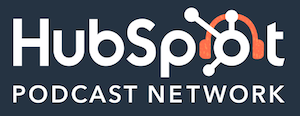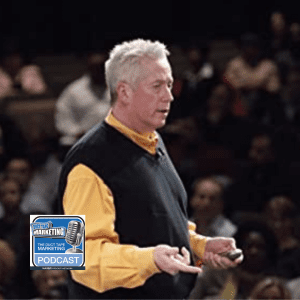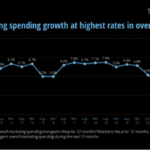How To Build Great Leadership Teams
How To Build Great Leadership Teams written by John Jantsch read more at Duct Tape Marketing
Marketing Podcast with Jack McGuinness
 In this episode of the Duct Tape Marketing Podcast, I interview Jack McGuinness. Jack is a management consultant with over 35 years of experience. After serving with the U.S. Army’s 10th Mountain Division, he helped build a successful boutique management consulting firm where he served as COO for 13 years. In 2009, he co-founded a new firm, Relationship Impact, a consulting firm focused on working with CEOs to unleash the potential of their leadership teams. He has a new book called — Building Great Leadership Teams: A Practical Approach to Unleashing the Full Potential of your Teams.
In this episode of the Duct Tape Marketing Podcast, I interview Jack McGuinness. Jack is a management consultant with over 35 years of experience. After serving with the U.S. Army’s 10th Mountain Division, he helped build a successful boutique management consulting firm where he served as COO for 13 years. In 2009, he co-founded a new firm, Relationship Impact, a consulting firm focused on working with CEOs to unleash the potential of their leadership teams. He has a new book called — Building Great Leadership Teams: A Practical Approach to Unleashing the Full Potential of your Teams.
![]()
![]()
Key Takeaway:
Leadership teams have an enormous impact on their organizations. Dysfunctional teams hold their organizations back but great leadership teams accelerate their health and productivity. In this episode, I talk with the co-founder of Relationship Impact, Jack McGuinness, about what a great leadership team looks like, how it feels to be part of one, and what it takes to build a great one.
Questions I ask Jack McGuinness:
- [2:45] What is this book going to bring to the leadership genre?
- [3:40] Why is being a leader such a challenge for entrepreneurs sometimes?
- [7:31] How do you start looking at who should be on the team?
- [10:47] When you see teams break down, what’s the single greatest factor in the demise?
- [12:13] Do you think that it’s a good idea for teams to intentionally seek diversity?
- [13:23] Is what you’re talking about just as much a retention and recruitment tool as it is a productivity tool?
- [15:30] What is the leader’s job in a team?
- [17:52] So if I’m a leader or I’m on a team, and I’m thinking I need to pick up this book, what am I going to find in the book?
- [18:59] Where can people find out more about your book and your work?
More About Jack McGuinness:
- Relationship Impact
- More about his book — Building Great Leadership Teams
Take The Marketing Assessment:
- Marketingassessment.co
Like this show? Click on over and give us a review on iTunes, please!
John Jantsch (00:00): This episode of the duct tape marketing podcast is brought to you by the female startup club, hosted by Doone Roison, and brought to you by the HubSpot podcast network. If you’re looking for a new podcast, the female startup club shares tips, tactics and strategies from the world’s most successful female founders, entrepreneurs, and women in business to inspire you to take action and get what you want out of your career. One of my favorite episodes who should be your first hire, what’s your funding plan, Dr. Lisa Cravin shares her top advice from building spotlight oral. Listen to the female startup club, wherever you get your podcasts.
John Jantsch (00:49): Hello, and welcome to another episode of the duct tape marketing podcast. This is John Jantsch and my guest today is Jack McGuinness. He is a management consultant with over 35 years in the business. After serving with the us Army’s 10th mountain division. He helped build a successful boutique management consulting firm where he served as the chief operating office served for 13 years in 2009. He co-founded a new firm with west point with his west point classmate called relationship impact a consulting firm focused on working with CEOs to unleash the potential of their leadership teams. And today we’re gonna talk about is newest book called building great leadership teams, a practical approach to unleashing the full potential of your teams. So Jack, welcome to the show.
Jack McGuinness (01:36): Thanks so much for having me, John. It’s good to see you again.
John Jantsch (01:39): So the 10th mountain division, did you learn to ski when you were, uh, yeah,
Jack McGuinness (01:43): No, it was roughly cold. I, we were, it was an upstate New York on the foot of lake Ontario or tip of lake Ontario. And it was people from the sixth infantry division used to come in for, for cold weather training. It was that cold, but it used to used to be in Colorado
John Jantsch (01:58): And, well, that’s what I was gonna say. That’s in fact, there’s a whole system of huts and things that they’ve kept up in the mountains and refurbished, and now you can, you know, cross country ski and hiked to ’em and, and ran ’em out in the winter. And, and I just BEC I’ve gone to a couple of them and I read a pretty fascinating account about the, that division’s, uh, role in world war II and heck pretty fascinating.
Jack McGuinness (02:18): Pretty fast. Yeah. In, in Italy, I think they have
John Jantsch (02:21): Yeah, exactly.
Jack McGuinness (02:21): A big role. Yeah. And they played a huge role in, in the first Gulf war too. Is that right? For sure. Yeah.
John Jantsch (02:28): So I have to start on the cynical side first
Jack McGuinness (02:55): You know, I think the reason I actually wrote it, cause I agree with you. There’s a lot of good stuff out there too. It’s not just flaky stuff. There’s some flaky stuff too, but there’s some really good stuff out there. There’s not a lot on building leadership teams. There’s a lot on teams. There’s a lot on, you know, leadership in general, but on building leadership teams, not so much. And so that’s really why I, I, I, I felt like I had something to say after doing this for 14 years,
John Jantsch (03:25): You know, a lot of entrepreneurs, uh, start a business and with an idea and then it grows up and all of a sudden they find themselves being a manager leader
Jack McGuinness (03:47): Yeah. So, so it’s, it is a challenge for them. No question about it for, for a lot of them, but it’s what, what I found is that it’s a challenge for those that have, you know, started in a managing training program and grown up the ranks in a mid-size company and building a leadership team is hard. And it’s, it’s, you can’t just throw a group of talented individual players that are good at their individual function, sales, marketing, CFO, operations, you can throw ’em together. And that’s what most firm companies do. And some have a lot of success with it. And others often struggle with the dysfunction that re results from not stepping back and really thinking through what does a leadership team need to be doing for this organization at this time in its journey?
John Jantsch (04:44): Well, I imagine one of the challenges is that as a comp, particularly as a company grows and they start having teams plural, it, it really, you know, it’s not like somebody sat out and said, let’s poof build a team, right? I mean, a team sort of assembles and doesn’t that make it, doesn’t that dynamic alone, make it difficult to have everybody get along.
Jack McGuinness (05:04): It does. It, it, it absolutely does. And that, and thus the premise behind the book is very much leadership teams are critical for the health and productivity about an organization, because everyone looks up to the leaders in the organization to see how well they’re working together and holding each other accountable, not so much how much they like each other, but how they’re holding each other accountable. Right. And in order to do that, well, you have to have a good structural foundation for your team, like blah, the blocking and tackling things that are elemental for, you know, running a meeting. Well, for example, a bit, you know, the most basic of things that often are, is not well done. And you have to really set up the right relational dynamics and just step back and say, Hey, look, all of us are different. We’ve all come from different places, journeys.
Jack McGuinness (06:00): And that’s great, but what do we need from each other at this particular juncture in this organization’s journey? And, and if you don’t step back and do that, you put structure in place that sometimes causes some relational strife, right? We’ll put, you know, and, and, and not necessarily intentionally even, but we’ll put structure in place like that. We’ll define roles. And we’ll assume that everyone knows what the marketing Del, you know, delivery focus folks are supposed to do. And the sales folks are supposed to do. And it’s the gray areas between those roles that gets teams in trouble and then bleeds down to the rest of the organization as well sometimes. And so it’s really that Def helping, you know, build the right structure and just talk about what the structure should look like. It, it, it, it saves so much pain on the back end because we’re not pointing fingers at as much at, at each other for stupid things. Look, people are gonna argue, people are gonna, you know, get into confrontations. And that’s a good thing if they’re fighting about the right stuff.
John Jantsch (07:17): So one of the very first steps, of course, which makes a ton of sense, but probably people don’t think about it enough is a lot of times we think in terms of, oh, we have to fill this function or this job on the team, as opposed to who would be the right person.
Jack McGuinness (07:31): That’s right.
John Jantsch (07:32): So, so how, you know, how do you, and I’m, I’m guessing it’s different for every company cuz every culture’s different, but you know, how do you start looking at who should be on the team?
Jack McGuinness (07:43): Well, of course, you know, the functional business unit leaders are, you know, are the natural, you know, people that people, you know, that CEOs point to. Right, right. And that’s fine. It’s a great starting point. The challenge is we have to step back and say, what are the unique capabilities that these individuals need to have to be a really good leadership team member? Things like the ability to think beyond today to, to think beyond today’s problem or the next three months and help the organization help the team think a little further out than that. And not, I’m not talking about a strategic planning effort. I’m talking about just the foresight necessary to how you know, what’s going on in my environment. That’s gonna, you know, gonna impact how we’re operating today. It’s things like managing complexity, you know, can do we have the ability to deal with all this stuff that comes with rising in an organization.
Jack McGuinness (08:43): And now I’m not just a functional player, but I have more things thrown at me, more discussions I’m having about broader issues. Can I take that, those things in and deal with the complexity and make sense of it and more importantly, help the folks under me make sense of it and perhaps more important than anything is, do I have the innate capability to have a, an organization focus or what we call a greater good focus rather than a functional focus. Right? And so we, we know that not every leader has those innate characteristics to start, right, but identifying that they need to have some development on those characteristics is very important and it’s a missed opportunity. We find often.
John Jantsch (09:29): And now let’s hear from our sponsor, you know, as a business owner, you eventually realize you can’t do everything yourself, but hiring is complicated. And what if you only need part-time help your job is to be the visionary. But instead you spend countless hours on tasks that could be done easily and arguably better by someone else. And that’s where the powerful multiplying effects of delegation are mission critical. Our friends at belay can help. Belay is an incredible organization, revolutionizing productivity with their virtual assistance bookkeepers website specialists and social media managers for growing organizations to help you get started. Belay is offering their latest ebook, delegate to elevate for free to all of my listeners. Now in this ebook, you’ll learn how to reclaim time to focus on what you can do by delegating to download your free copy. Just text tape to 5, 5, 1, 2, 3, that’s T a P E to 5, 5 1, 2, 3, accomplish more and juggle less with belay.
John Jantsch (10:40): I should just ask you this, but I know the answer to it already, but yeah, when you see teams break down, uh, what, what is the, what’s the single greatest factor?
Jack McGuinness (10:51): Oh, it’s the, the greatest factor is the inability to have tough conversations about or productive conversations about the most important things that they’re facing, not about trivial crap focus on what’s most important. And what that means is that we have to disagree with each other sometimes because we come at things in from different perspectives and the
John Jantsch (11:15): It’s, it’s tough to, it’s tough to disagree if you don’t trust. I mean, that’s what I was really,
Jack McGuinness (11:19): You know, so, and so the relational dynamics here are really important is do we trust each other enough where we can have those tough conversations without being judged, without being shut down without having my colleague go talk to the CEO after the meeting and tell ’em how, what a stupid idea it was. And then ultimately, you know, we’ve never really gotten to this, but we aspire every team we work with. We, our aspiration is that they are able to hold each other accountable without just the power accountability in their room. Now that’s a heavy lift. That’s a hard thing to get to for any team, but when you can move towards and move the needle towards it and even be spastic as you’re getting towards it, that progress really helps build the fibers amongst the team members.
John Jantsch (12:11): Do you think that it’s a good idea for teams to intentionally seek diversity? And I’m not just necessarily talking about race or ethnicity, but I mean, diversity of ideas, diversity of backgrounds. I mean, do you think that plays a role or does that make it harder?
Jack McGuinness (12:26): I, I, it makes it harder. It makes it harder for sure. No question about it, but it it’s absolutely crucial. Like we, we see often CEOs that will hire people or promote people that are just like them. Right. You know, she grew up in the organization very similar to I did and a sales role and then went to a marketing role and she’s got a very, you know, people oriented approach to her. So I’m gonna put, I’m gonna bring her up and that’s great, but not everyone can have the same or shouldn’t have the same way of thinking. Look, it happens. And, and that’s fine, but you have to compensate for it. You have to ask yourself questions. Like, what are we missing here? Because we all think about this the same way. Right, right. It’s just, it’s the step back type of things you have to do.
John Jantsch (13:20): So the hiring environment, even retention environment right now of employees is, is as we, we all know is, you know, a much top talked about topic in the news. So how do you, I mean, is what you’re talking about is much a retention tool and a recruitment tool as it is a productivity tool.
Jack McGuinness (13:40): Well, I think, you know, there’s no question about it because a look, the CEO’s job is a big one and it doesn’t matter what size of the organization. Obviously it gets more complex and more, you know, as the bigger you get and the more span of control you have, but the CEO’s job is really to create the conditions for his or her team to build a productive and healthy organization. And those things are always, not always, but often in conflict with each other. And, you know, and, and it’s a hard job, but when you do that, well, the downstream effects on the people that are mid-level managers and below is dramatic because they’re like, look, the leadership, team’s not perfect, but man are, they are really, they got our backs and they’re pushing us. They’re pushing whole, I’m working with a bank right now started by a construction guy about 17 years ago.
Jack McGuinness (14:46): And it’s, you know, it’s grown like crazy. The, this is a great place to work and it’s not perfect. There’s chaos. They, you know, they attack problems with, with vigor and it leaves a trail of dust behind them sometimes, but they’re able to repair because the intentions are there that they’re trying to build something really cool. And while they’re doing it, they do take care of their people. It might be after the fact, but they do take care of their people. And, uh, I think that balance of PR product productivity and health is really important.
John Jantsch (15:22): Most teams of some sort of a, maybe it’s a rotating, but it’s an appointed leader. W would the analogy of a sports team kind of be the same where the, the leader of a team’s job really is maybe more like a coach? Or let me just ask you directly, what is the leader’s job of a team?
Jack McGuinness (15:40): Yeah. I mean, ultimately, um, ultimately, and if you, if you go back to the, the, my aspiration, our aspiration of the teams, we work with that they hold each other accountable. When you’re working towards that CEOs naturally evolved to be being more coaching oriented than directing oriented and much more oriented to be working with the, their leadership team to set the picture, to set the foundation, to identify what the most important priorities are, and then let people go now, again, that’s a Nirvana state too, you know, no question about it, but if you’re aspiring to get to something like that, much more likely to have greater success. So the CEO, you know, we started this thing again 14 years ago and our aspiration was like, you know, teams are really leadership teams are so important that it shouldn’t matter what the CEO’s role is on a team.
Jack McGuinness (16:45): And boy were we abused of that, that notion, you know, it’s critical, it’s absolutely critical the role they play. They have to model a whole bunch of stuff like the values that are espoused, the, you know, the, how the, he, or she wants the team to operate. And they have to have a strong role in set in, in establishing directing direction. And sometimes they have to play a heavy hand role, but most often what they have to do is push back when the lobbying happens. And I know that sounds like a trivial issue, but we see it all the time. Like you’ll have a great meaning, see, meeting a seemingly great meeting about an important issue. And then the CEOs getting calls, getting knocks on his door, telling him or her why those ideas were such bad ideas and why these ideas are good ones. And so, and the ability to say, Hey, wait a minute, we had this conversation, go talk to Jerry, go talk to Bob, go talk to Sue and figure this stuff out, and then let’s have a conversation about it, but I need you guys to figure this stuff out. Yeah.
John Jantsch (17:50): So if I’m, uh, a leader or I’m on a team, maybe even, and I’m thinking, I need to pick up this book, what am I gonna, is there a road? Is what am I gonna find in the book? Is it gonna be a roadmap, you know, start here, do then do this UN unpack it in the two yeah. Two minutes or so we have
Jack McGuinness (18:06): A few things it’s it really does. I think it does a pretty good job of talking about why a leadership team is so important in the impact it has on an organization. Number two, it talks, um, a lot about the structural and relational foundation necessary to build a good team mm-hmm
John Jantsch (18:55): Much, much needed. So tell people where they can find, uh, the book and find out more about your work, Jack.
Jack McGuinness (19:00): Yeah. So, so relationship impact.com is my website for my firm, but, uh, great leadership team. book.com is the books, companion website that I stole from you. I stole the model and this is my first book. So I’ve never done this before. And I was like, wow, I gotta get one of those companion sites.
John Jantsch (19:23):
Jack McGuinness (19:33): I will do that, John. No, no question, Matt, thank you so much for, for the opportunity. I appreciate it.
John Jantsch (19:38): Hey, and one final thing before you go, you know how I talk about marketing strategy strategy before tactics? Well, sometimes it can be hard to understand where you stand in that what needs to be done with regard to creating a marketing strategy. So we created a free tool for you. It’s called the marketing strategy assessment. You can find it @ marketingassessment.co not – dot com – .co check out our free marketing assessment and learn where you are with your strategy today. That’s just marketingassessment.co I’d love to chat with you about the results that you get.
Sign up to receive email updates
Enter your name and email address below and I’ll send you periodic updates about the podcast.
This episode of the Duct Tape Marketing Podcast is brought to you by the HubSpot Podcast Network and BELAY.

HubSpot Podcast Network is the audio destination for business professionals who seek the best education and inspiration on how to grow a business.
BELAY is an incredible organization revolutionizing productivity with its virtual assistants, bookkeepers, website specialists, and social media managers for growing organizations. To help you get started, BELAY is offering its latest book, Delegate to Elevate, for free to all our listeners. In this ebook, learn how to reclaim time to focus on what only you can do by delegating. To download your free copy, click here to claim or text TAPE to 55123. Accomplish more and juggle less with BELAY.
is an incredible organization revolutionizing productivity with its virtual assistants, bookkeepers, website specialists, and social media managers for growing organizations. To help you get started, BELAY is offering its latest book, Delegate to Elevate, for free to all our listeners. In this ebook, learn how to reclaim time to focus on what only you can do by delegating. To download your free copy, click here to claim or text TAPE to 55123. Accomplish more and juggle less with BELAY.







